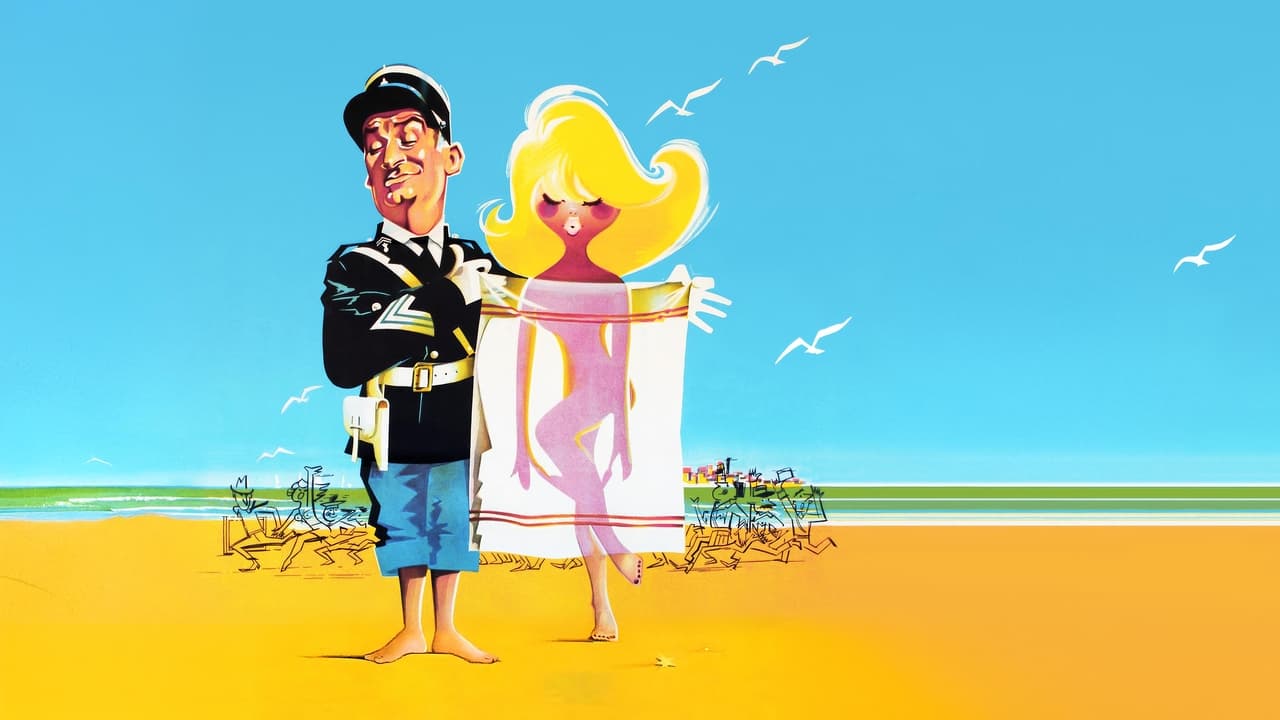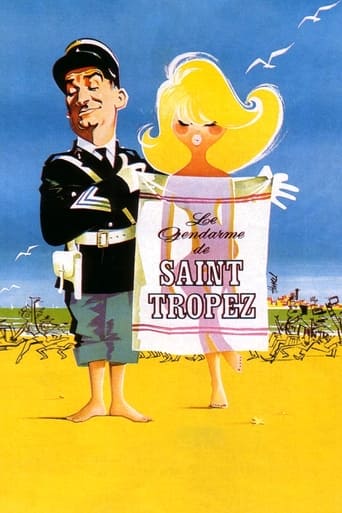

The ambitious police officer Cruchot is transferred to St. Tropez. He's struggling with persistent nude swimmers, but even more with his teenage daughter, who's trying to impress her rich friends by telling them her father was a millionaire and owned a yacht in the harbor.This film was such a pleasant surprise. I knew nothing going into it, was not familiar with the actors or anyone involved. Heck, I did not even know it was a comedy or what kind of comedy it was. And it hit me hard with laughs, definitely one of the finest French comedies ever made.By far the funniest part is the chasing of the nude swimmers. Somehow they manage to do it without it being obscene, just silly and quite humorous. If nothing else, the film is worth seeing for that sequence.
... View Morean easy comedy at the first sight. one of the most French comedy at the second view. because it propose a character and gives to a great actor the chance to build his glory. because it is the foundation of the universe of de Funes, the frame for his different masques, irony, stereotypes, humor, vulnerability, generosity, tenderness and frustration of the tyrant. short, the introduction to a seductive series and the first step to a world who remains touching, seductive and source of nostalgia. a story so simple, gags well known, hysterical little character and storms of different small situations. nothing more. so, must see it. maybe, as useful lesson of French cinema.
... View MoreWhat makes ,at least to these eyes,the first episodes of the gendarme saga worthwhile is the presence of his daughter ,played by the mischievous Geneviève Grad.When she left,after the third sequel,the other movies failed to excite me.Cruchot has been to transferred to Saint-Tropez and his daughter is overjoyed.She was probably sick and tired of singing canticles in the church of her one-horse town.In France it was ,like in the rest of the world the yeah yeah girls and the twistin' time.And Grad ,who was not a singer,is twisting and shouting a tune called "Saint-Tropez twist" and it goes like like that:"choobidoobidoobidoo Saint Tropez !Choobidoobidoobidoo Saint-Tropez!" But she wants to be part of the golden youth ,of the rich kids whose parents own yachts and desirable mansions on the Cöte d'Azur .It's not easy when you are a gendarme's daughter.And daddy will be led to adventures which will endanger his career because of his daughter's pretensions.All the elements which would make the series a blockbuster are present including the nun and her Deux-Chevaux .she probably has A Mickey mouse driving license.
... View MoreThis first part of the incredible gendarme-series sets the tone for the follow up. Funes and Galabru are the stars, but the lovely Geneviève Grad as Cruchot's daughter Nicole has a fine performance including singing a catchy tune. She's is trying to make a good impression at her new friends by claiming she's the daughter of a famous businessman instead of a gendarme. This is the start of a fine mess, which includes a kidnapping,some hilarious impersonations and a Rembrandt painting. Cruchot puts himself in some awkward positions to save him and his daughters ass. Surely 4 out of 5.
... View More